
- By Theme
-
Destinations
-
Indian Destinations
-
International Destinations
-
- Best Places to Visit
- Packages
- Search Agents
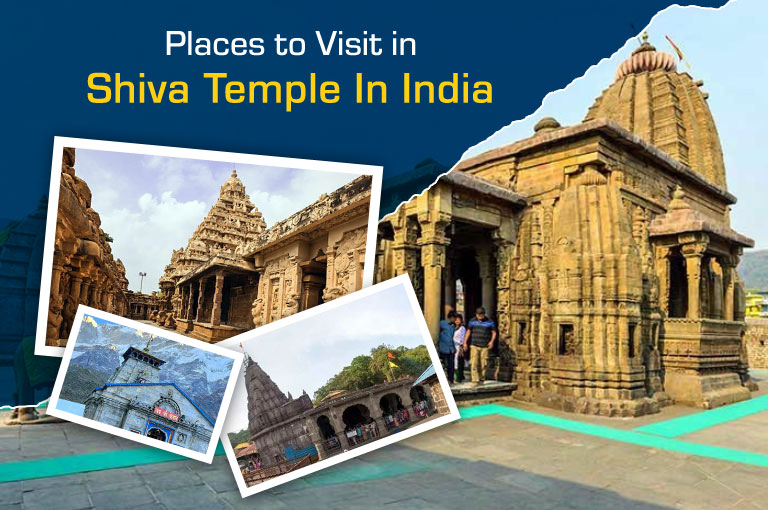
The sacred month of Sawan transforms India into a spiritual powerhouse, with millions of devotees embarking on pilgrimages to seek Lord Shiva's blessings. As the monsoon clouds gather and the air fills with devotional chants, every Shiva temple in India becomes a beacon of faith, drawing pilgrims from across the globe. Whether you're seeking spiritual enlightenment or exploring India's rich cultural heritage, these ten magnificent Shiva temples offer unforgettable experiences during the holy month of Sawan. From the Himalayan heights to riverside ghats, each Shiva temple in India tells a story of devotion, legacy, and divine energy that resonates deeply with every visitor.
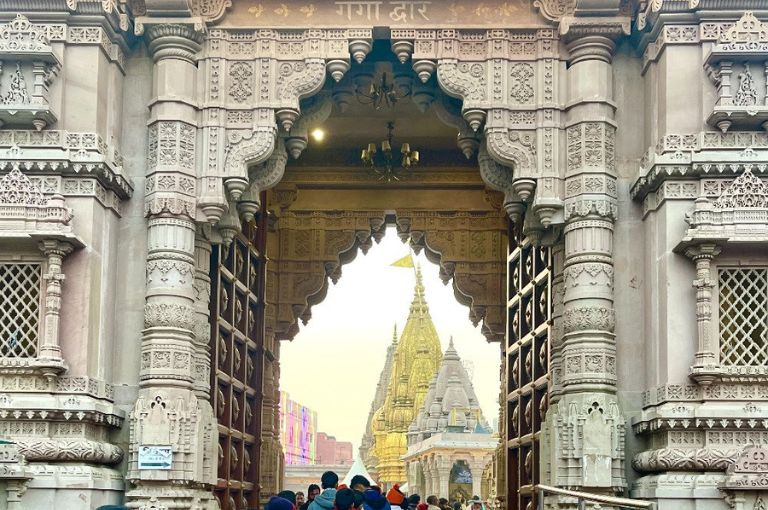
Standing majestically on the banks of the sacred Ganges, Kashi Vishwanath Temple is arguably the most famous Shiva temple in India. This golden-spired sanctuary has witnessed centuries of devotion and houses one of the twelve sacred Jyotirlingas.
Historical Legend: Ancient texts proclaim that Lord Shiva himself established this temple, making it his eternal abode. The temple's golden spire, donated by Maharaja Ranjit Singh, catches the first rays of dawn, creating a breathtaking spectacle.
Photography Guidelines:
Capture the golden spire during sunrise from Dashashwamedh Ghat
Evening Ganga Aarti provides stunning silhouette shots
Narrow lanes leading to the temple offer authentic street photography
Local Food Specialties: Savor Banarasi paan, kachori sabzi, and the famous Banarasi lassi at local vendors.
Accommodation: Stay at heritage hotels like Brijrama Palace or budget options near the ghats.
Transportation: Varanasi airport is well-connected; auto-rickshaws and cycle-rickshaws navigate the narrow lanes to the temple.
Places to visit in Varanasi: Extend your spiritual journey by exploring Sarnath, Ramnagar Fort, and the mesmerizing evening Ganga Aarti ceremony.
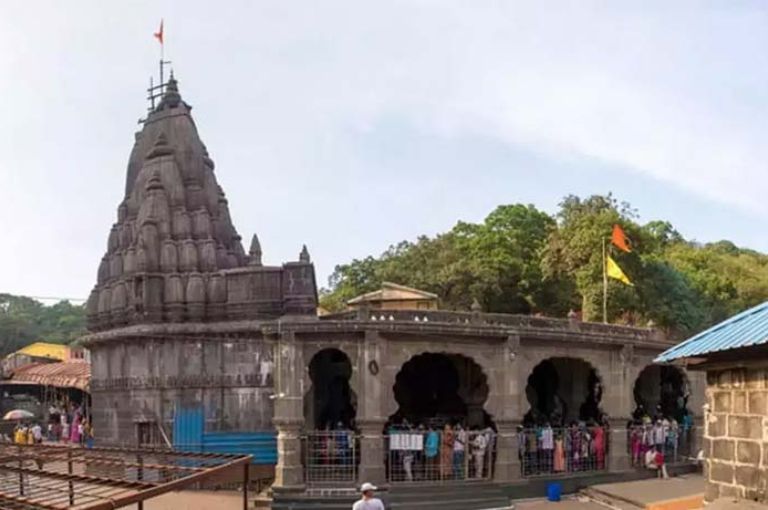
Nestled in the lush Sahyadri mountains, Bhimashankar Temple stands as one of the twelve Jyotirlingas, offering both spiritual solace and natural beauty. This ancient shrine is surrounded by dense forests teeming with wildlife.
Historical Legend: According to mythology, this is where Lord Shiva defeated the demon Tripurasura, and the temple marks the spot where the demon's sweat formed a river.
Photography Guidelines:
Monsoon season provides misty mountain backdrops
Wildlife photography opportunities in the surrounding sanctuary
Early morning temple architecture shots with natural lighting
Local Food Specialties: Try traditional Maharashtrian thali, puran poli, and local forest honey.
Accommodation: Forest guest houses and eco-resorts offer immersive experiences.
Transportation: Drive from Pune (100 km) or take buses to Khed, then local transport to the temple.
Adventure Element: The surrounding Bhimashankar Wildlife Sanctuary offers trekking trails and bird watching opportunities.
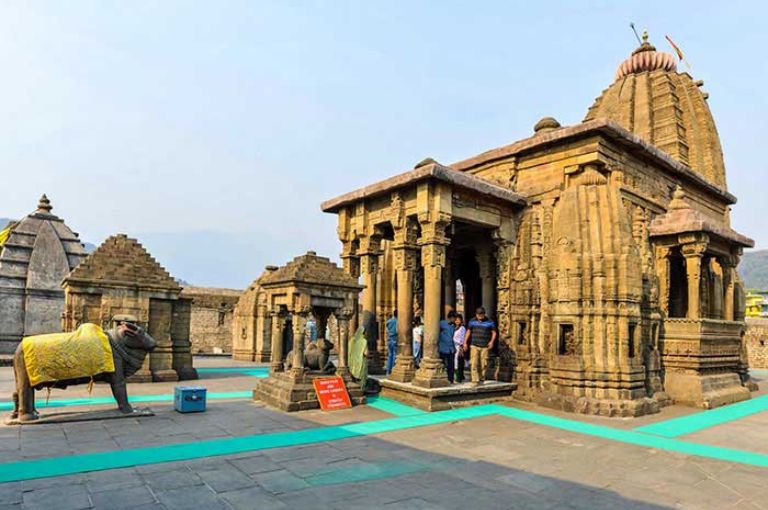
Perched in the scenic Kangra Valley, Baijnath Temple is a masterpiece of ancient architecture dating back to 1204 CE. This oldest Shiva temple in India showcases exquisite stone carvings and houses a naturally formed Shiva lingam.
Historical Legend: Built by two local merchants, Ahuka and Manyuka, this temple is believed to be where Lord Shiva appeared as Vaidyanath (the divine healer).
Photography Guidelines:
Golden hour lighting enhances the stone carvings
Panoramic valley views from the temple premises
Architectural details require macro photography
Local Food Specialties: Enjoy Himachali dham, trout fish, and local apple-based delicacies.
Accommodation: Stay in Palampur or Dharamshala for comfortable lodging options.
Transportation: Pathankot railway station is the nearest major junction; taxis and buses connect to Baijnath.
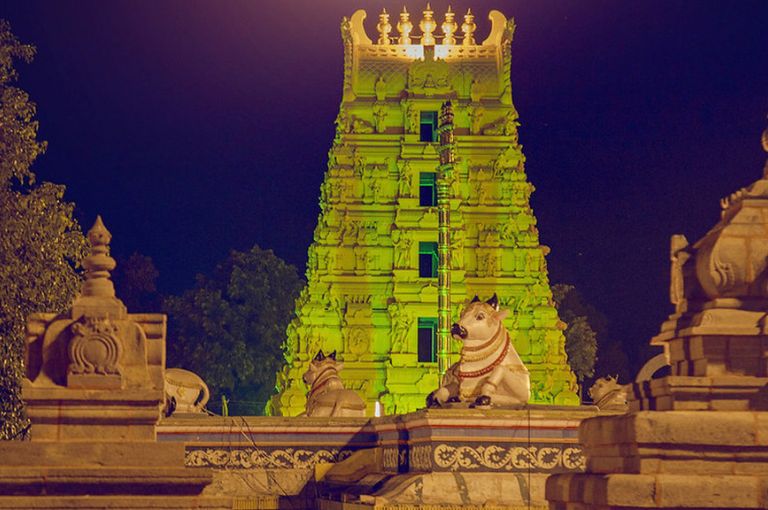
Situated on the banks of the Krishna River, this ancient temple is unique as it houses both Shiva and Shakti, making it both a Jyotirlinga and a Shakti Peetha. The temple's location atop the Nallamala Hills adds to its mystical aura.
Historical Legend: This is where Lord Shiva and Goddess Parvati resided after their son Kartikeya left for the Krauncha mountain in anger.
Photography Guidelines:
Sunrise shots from the hilltop temple
Krishna River views provide stunning backdrops
Ropeway rides offer aerial photography opportunities
Local Food Specialties: Andhra thali, Srisailam laddu prasadam, and spicy Andhra curries.
Accommodation: Haritha Hotel and private lodges offer comfortable stays.
Transportation: Hyderabad airport (230 km) is the nearest major hub; regular buses connect to Srisailam.
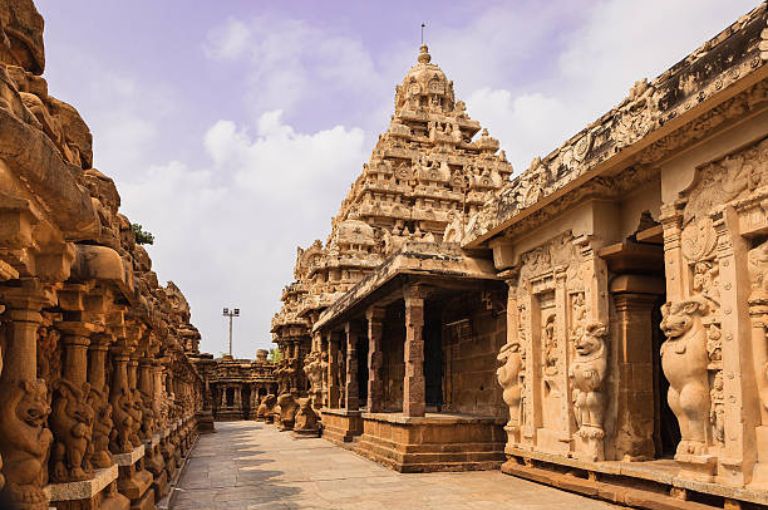
This architectural marvel, built in the 8th century, represents the pinnacle of Pallava dynasty craftsmanship. The temple's sandstone structure and intricate sculptures make it a UNESCO World Heritage site.
Historical Legend: Built by Pallava king Rajasimha, this temple is dedicated to Lord Shiva as the Lord of Mount Kailash.
Photography Guidelines:
Early morning light brings out the sandstone's golden hues
Detailed carvings require close-up photography
Surrounding heritage architecture provides context shots
Local Food Specialties: Kanchipuram idli, filter coffee, and traditional Tamil Nadu meals.
Accommodation: Heritage hotels and budget lodges in Kanchipuram town.
Transportation: Chennai airport (75 km) connects to Kanchipuram via train and bus services.
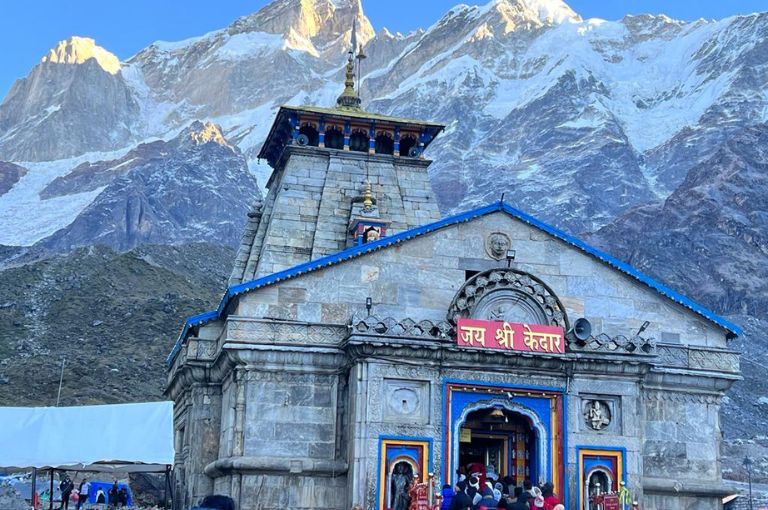
Located at an altitude of 3,583 meters in the Garhwal Himalayas, Kedarnath Temple is one of the most challenging yet rewarding pilgrimage destinations. This sacred shrine is one of the twelve Jyotirlingas and part of the Char Dham circuit.
Historical Legend: Legend states that the Pandavas built this temple to seek Lord Shiva's forgiveness after the Kurukshetra war.
Photography Guidelines:
Himalayan sunrise and sunset shots
Pilgrimage trek documentation
Snow-capped peaks provide dramatic backdrops
Local Food Specialties: Simple vegetarian meals, hot tea, and local hill station snacks.
Accommodation: Basic ashrams and guesthouses in Kedarnath; comfortable hotels in Guptkashi.
Transportation: Helicopter services from Phata; traditional trek from Gaurikund (16 km).
Weather Updates: Open May to November; heavy snowfall closes access in winter.
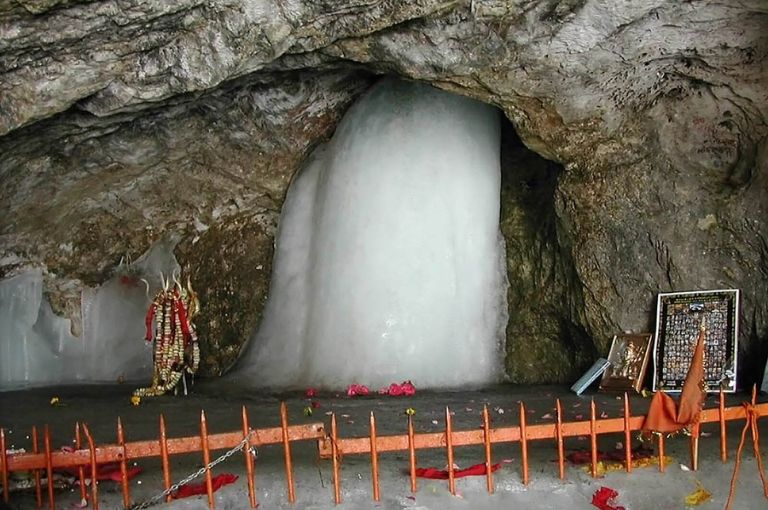
This natural cave temple, situated at 3,888 meters, houses a naturally formed ice lingam that waxes and wanes with the moon. The challenging high-altitude pilgrimage attracts devotees from around the world.
Historical Legend: Discovery is attributed to a Muslim shepherd, Buta Malik, who was guided by a sage to this sacred cave.
Photography Guidelines:
Natural ice formation documentation
High-altitude landscape photography
Pilgrimage journey captures
Local Food Specialties: Simple sattvic meals during the yatra; Kashmiri wazwan in Srinagar.
Accommodation: Temporary camps during yatra season; hotels in Pahalgam and Srinagar.
Transportation: Srinagar airport; then bus/taxi to Pahalgam or Baltal base camps.
Essential Items: High-altitude gear, warm clothing, and proper trekking equipment.
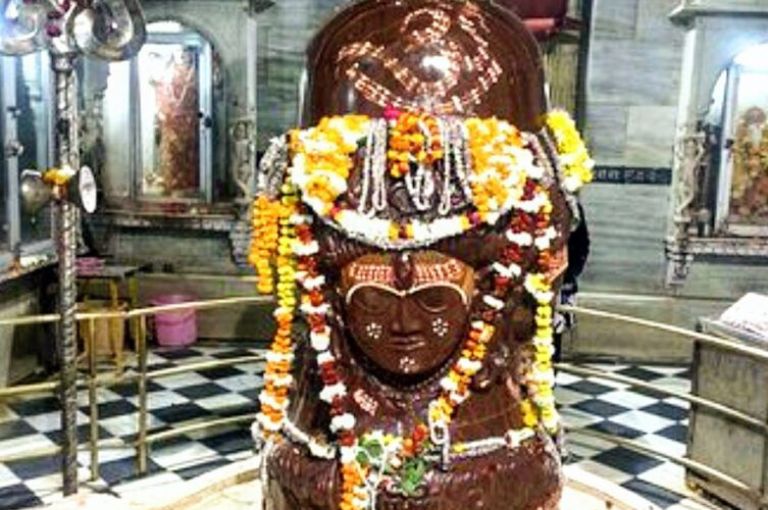
This UNESCO World Heritage site on the banks of the Bagmati River is one of the most sacred Shiva temples outside India. The temple complex features stunning pagoda-style architecture and houses the sacred Shiva lingam.
Historical Legend: According to Hindu mythology, Lord Shiva once took the form of an antelope and was discovered here by the gods.
Photography Guidelines:
Pagoda architecture against mountain backdrops
Bagmati River sunset shots
Cultural festival photography
Local Food Specialties: Nepalese dal bhat, momos, and traditional Newari cuisine.
Accommodation: Kathmandu offers numerous hotels and guesthouses for all budgets.
Transportation: Tribhuvan International Airport; local taxis and buses to the temple.
Cultural Context: Respect local customs and photography restrictions in sacred areas.
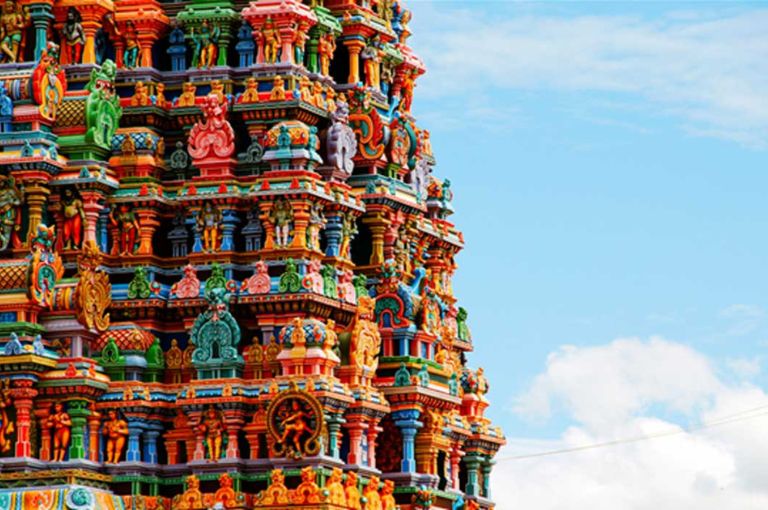
While primarily dedicated to Goddess Meenakshi, this temple complex includes significant Shiva shrines. The famous Shiva temple in Ujjain may be renowned for its Mahakaleshwar lingam, but Madurai's temple represents the biggest Shiva temple in India in terms of architectural grandeur and complex size.
Historical Legend: The temple celebrates the divine marriage of Goddess Meenakshi and Lord Sundareswarar (Shiva).
Photography Guidelines:
Colorful gopuram towers
Intricate corridor perspectives
Festival celebration photography
Local Food Specialties: Madurai's famous Jigarthanda, traditional Tamil meals, and local street food.
Accommodation: Heritage hotels and budget options in Madurai city.
Transportation: Madurai airport and railway station provide excellent connectivity.
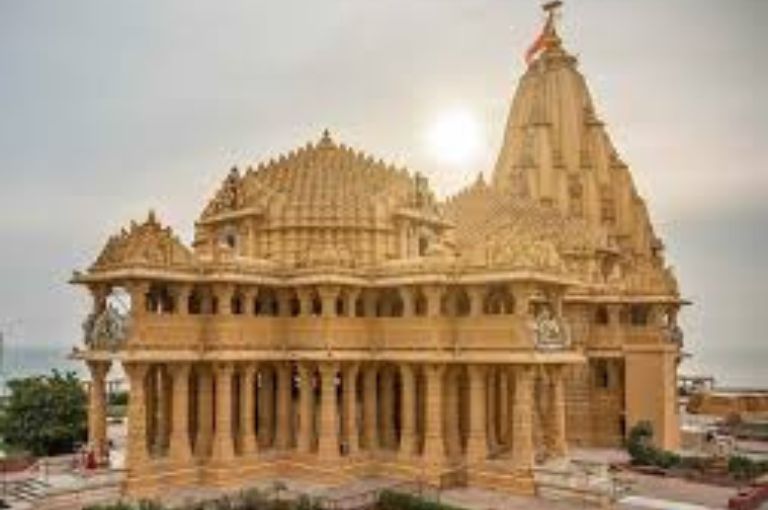
Standing proudly on the Arabian Sea coast, Somnath Temple is the first among the twelve Jyotirlingas. This popular Shiva temple in India has been rebuilt several times throughout history, symbolizing the indestructible nature of faith.
Historical Legend: Moon god Chandra worshipped Lord Shiva here to regain his lost luster, giving the temple its name "Somnath" (Lord of the Moon).
Photography Guidelines:
Dramatic coastal sunset shots
Temple architecture against ocean backdrop
Sound and light show documentation
Local Food Specialties: Gujarati thali, dhokla, and fresh seafood from the coastal region.
Accommodation: Beachside resorts and temple guest houses.
Transportation: Diu airport (65 km) or Veraval railway station provide connectivity.
Planning a temple circuit requires careful consideration of distances, weather conditions, and local festivals. Start with geographically clustered temples and allow extra time for monsoon delays.
Use Indian Railways' extensive network for economical travel
Stay in temple guest houses and ashrams
Book group tours for shared transportation costs
Consider off-season visits for lower accommodation rates
For Mountain Temples:
Warm clothing and rain gear
Sturdy trekking shoes
First aid kit and altitude sickness medication
Portable oxygen canisters for high-altitude temples
For All Temples:
Comfortable walking shoes
Modest clothing respecting local customs
Reusable water bottles
Portable phone chargers and power banks
Sawan brings numerous festivals including Teej, Kanwar Yatra, and Shravan Somwar celebrations. These festivals offer incredible cultural photography opportunities and deeper spiritual experiences.
Tourist places to visit in Ujjain: While exploring the region, don't miss the Mahakaleshwar Temple, Kal Bhairav Temple, and the historic Ujjain Observatory.
Famous Shiva temples in Varanasi: Beyond Kashi Vishwanath, explore Tilbhandeshwar Temple, Kaal Bhairav Temple, and Sankat Mochan Temple.
Easy Access: Kashi Vishwanath, Somnath, Kailasanathar, Meenakshi Amman Moderate: Bhimashankar, Baijnath, Mallikarjuna Swamy Challenging: Kedarnath, Amarnath International: Pashupatinath
Peak Season: July-August (Sawan month) Moderate Crowds: September-October Lower Crowds: November-March Mountain Temples: May-October only
Budget Trip: 15,000-25,000 for 10-day circuit, Mid-Range: 35,000-50,000 with comfortable accommodations Luxury: 75,000+ with premium hotels and helicopter services
These ten magnificent Shiva temples represent the diverse spiritual landscape of India and beyond. From the ancient ghats of Varanasi to the snow-covered heights of Kedarnath, each temple offers a unique spiritual experience, steeped in centuries of faith and devotion. Especially during the sacred month of Sawan, these holy shrines become powerful centers of divine energy, where the air itself is charged with chants of Har Har Mahadev and the fragrance of incense.
As you plan your spiritual journey, it’s essential to recognize that each Shiva temple in India is not just a stunning architectural marvel but also a living center of faith that has nurtured generations of devotees. Whether you’re seeking spiritual awakening, cultural exploration, or the thrill of a sacred adventure, these divine destinations promise to leave a deep and lasting impact on your soul.
No Shiva pilgrimage is complete without mentioning the revered 12 Jyotirlingas of India, which hold immense significance in Hinduism. These iconic Shiva temple in India are:
Somnath – Gujarat
Mallikarjuna – Andhra Pradesh
Mahakaleshwar – Madhya Pradesh
Omkareshwar – Madhya Pradesh
Kedarnath – Uttarakhand
Bhimashankar – Maharashtra
Kashi Vishwanath – Uttar Pradesh
Trimbakeshwar – Maharashtra
Vaidyanath (Baidyanath Dham) – Jharkhand
Nageshwar – Gujarat
Ramanathaswamy – Tamil Nadu
Grishneshwar – Maharashtra
Each of these Shiva temples is believed to be a powerful manifestation of Lord Shiva’s presence, and visiting them is considered a deeply purifying and transformative experience for devotees.
To make your pilgrimage smooth, spiritually fulfilling, and hassle-free, rely on TourTravelWorld.com – India’s trusted travel portal .To customize a temple tour across the country, Tour Travel World offers reliable travel agents, verified tour packages, and spiritual itineraries to match your needs.
Don’t just dream of darshan—book your spiritual escape today with us and embark on a journey that will uplift your soul and reconnect you with India’s divine heritage.